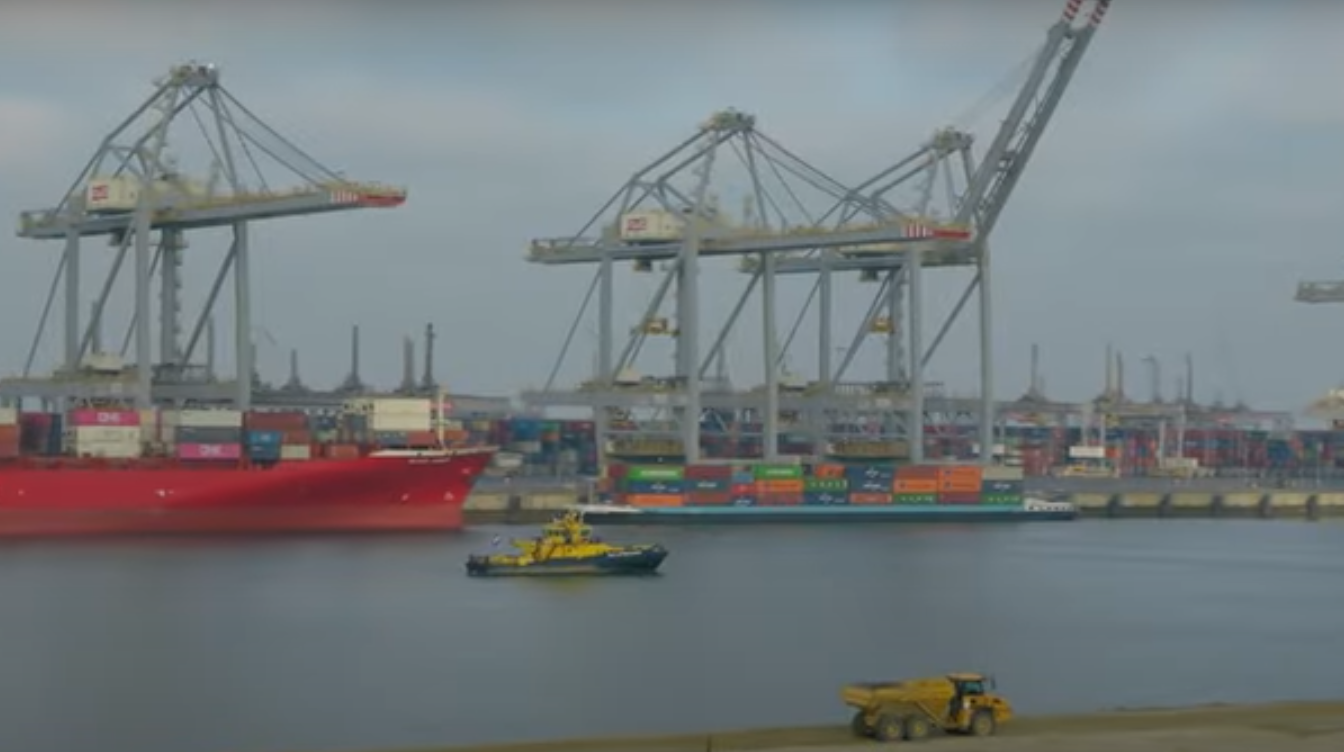
Image:The Port of Rotterdam Authority
The recent unrest surrounding the entry to the Red Sea is anticipated to result in increased activity at container terminals in January 2024. However, the overall impact on the total cargo handling at the Port of Rotterdam is expected to be minimal. The Rotterdam Port Authority anticipates a decrease of approximately 1.25 million tons in the cargo handling figures for 2023 due to delays affecting operations around the New Year. This apparent ‘loss’ is expected to contribute positively to the 2024 results.
Navigational Adjustments and Extended Voyage Times
In response to the unrest, many sea vessels, especially container ships from the Middle East and Southeast Asia, have rerouted around the Cape of Good Hope in recent weeks. This detour adds an extra travel time of eight to twelve days for container ships. Bulk carriers, which generally travel at a slower pace – 24 kilometers per hour compared to the usual 33 kilometers per hour – experience an extended journey of eleven to eighteen days. The distance from Singapore to Rotterdam via the Suez Canal is 8,288 nautical miles (nm) or 15,349 kilometers (km). In contrast, the route via the Cape of Good Hope spans 11,755 nm or 21,770 km.
December Cargo Handling Impacts
Analyzing the repercussions of these delays, the Port Authority calculated a reduction of approximately 1.25 million tons in cargo handling for the month of December. To put this into perspective, the total cargo handling at the Port of Rotterdam in 2022 amounted to 467 million tons.
The Port Authority estimates that the container handling in the last two weeks of December will be around 65,000 TEU (twenty-foot equivalent units), approximately 0.65 million tons less than anticipated. Regarding wet bulk cargo, including oil, oil products, and palm oil, the Port Authority expects a maximum impact of 0.5 million tons. While the Suez Canal typically facilitates the transportation of approximately 2.4 million tons of Rotterdam’s wet bulk each month, not all bulk carriers have rerouted. Additionally, around 0.5 million tons of dry bulk, such as coal and iron ore, are transported through the Suez Canal to Rotterdam monthly. The Port Authority estimates the maximum impact for this type of cargo at approximately 0.1 million tons.
Despite these challenges, the Port of Rotterdam remains resilient, with minimal disruptions anticipated beyond the immediate effects on December’s cargo handling statistics. The navigational adjustments made by vessels reflect the adaptability of the maritime industry to unexpected geopolitical events, ensuring the continued smooth operation of one of Europe’s busiest ports.
Source:The Port of Rotterdam Authority

